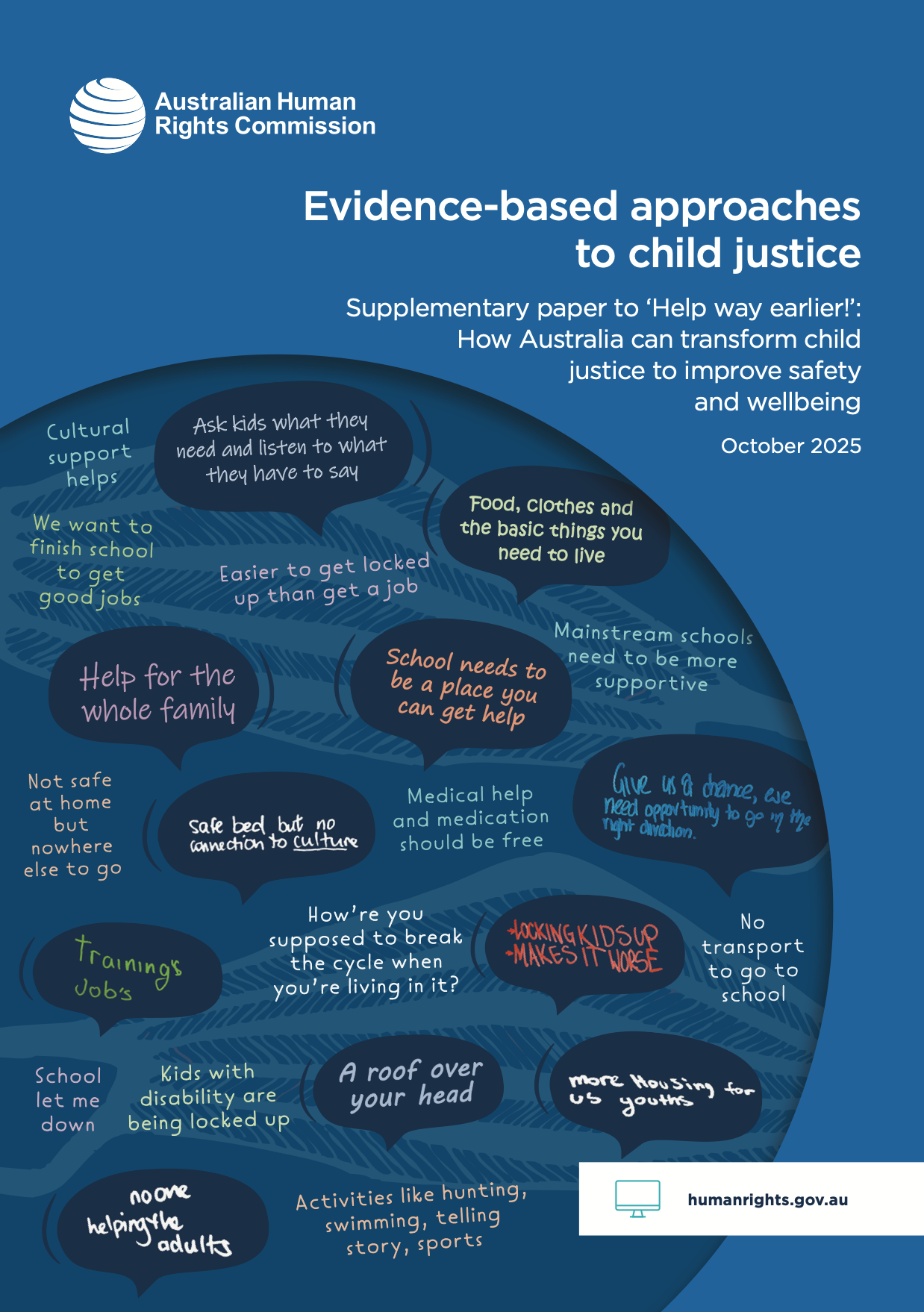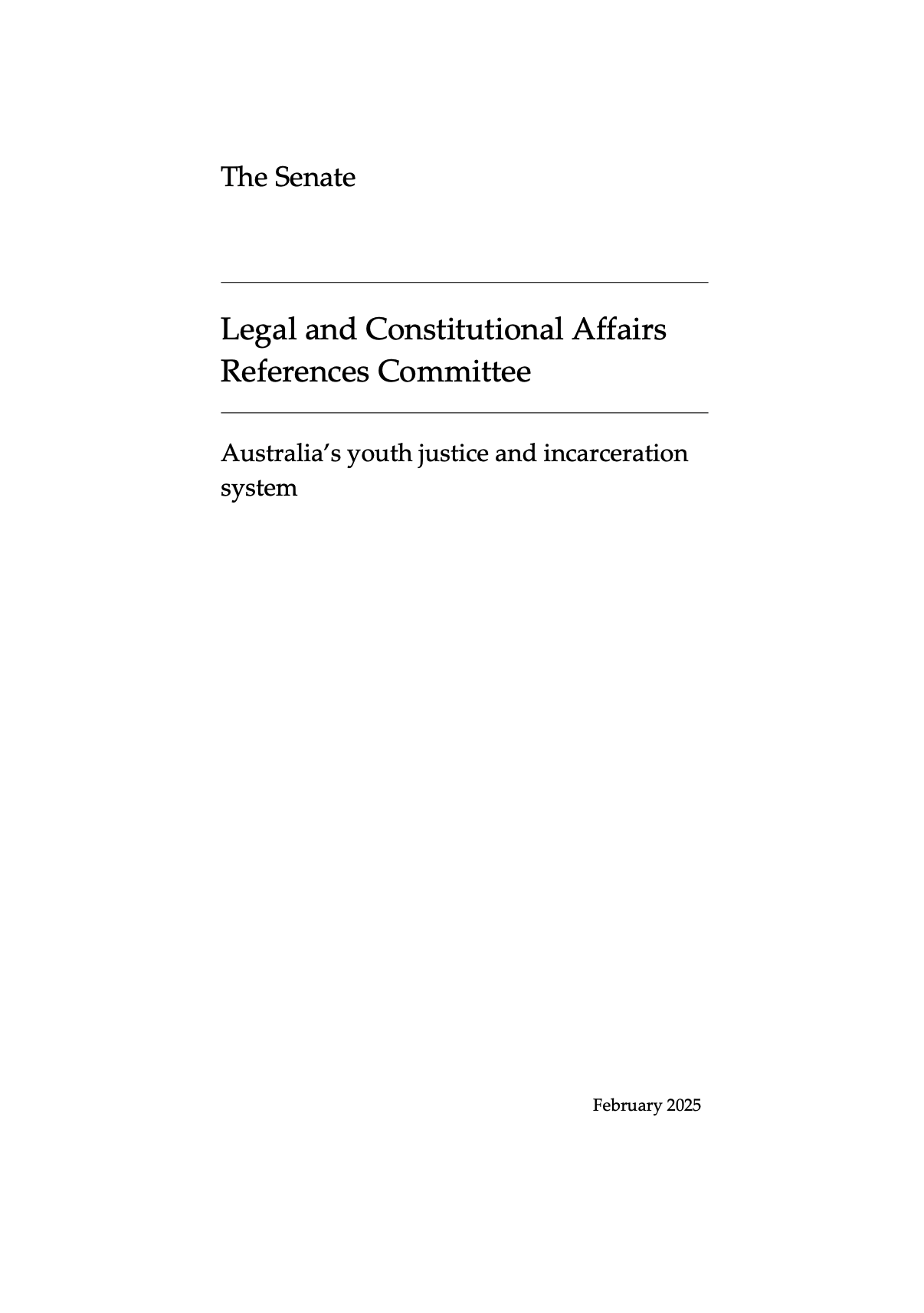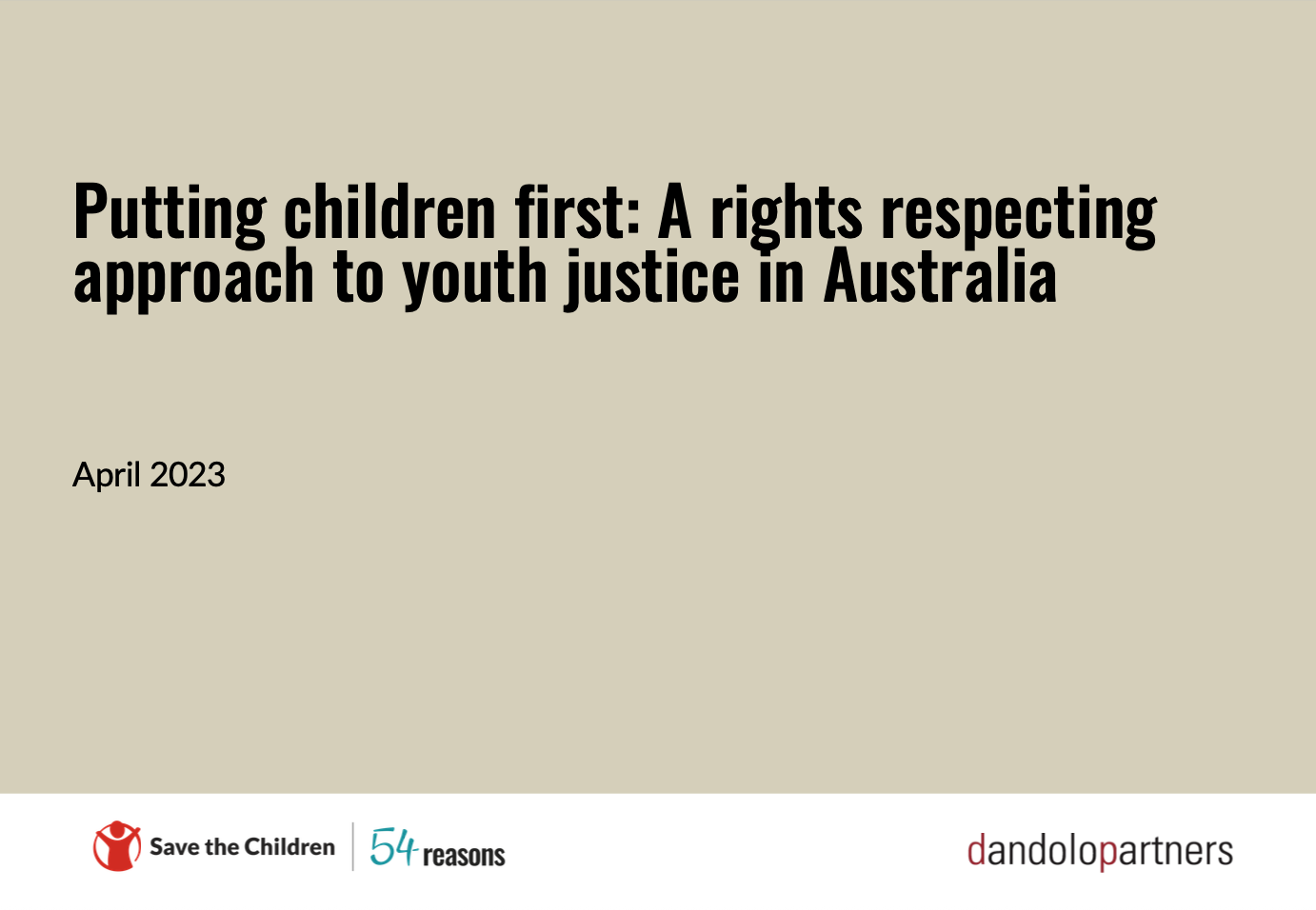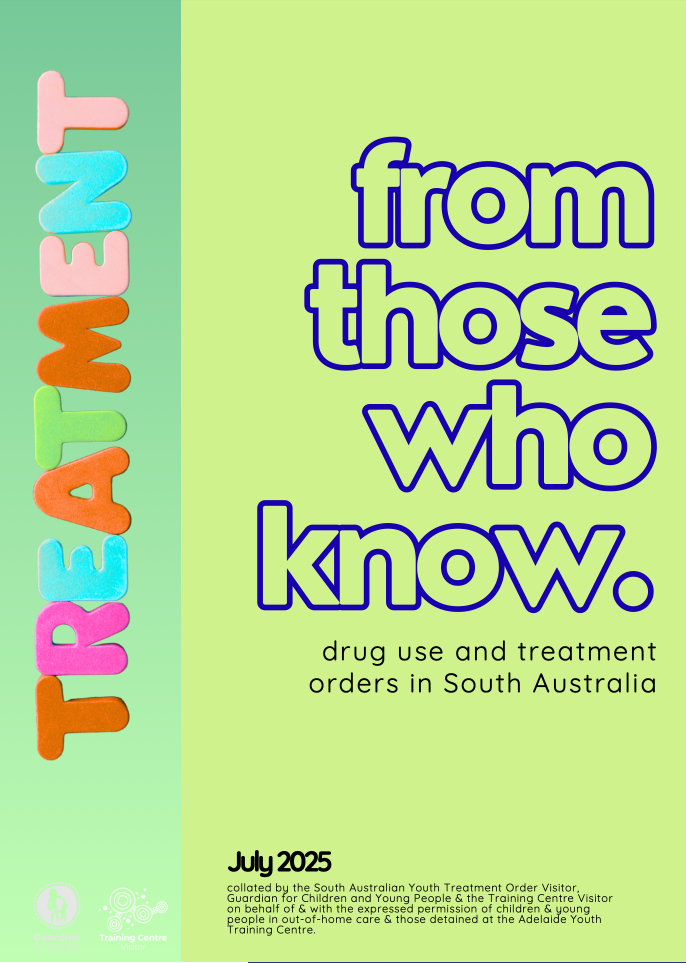2025
Evidence-based approaches to child justice
This Supplementary paper to ‘Help Way Earlier!’ provides 6 local and international case studies of alternative approaches to systems and program reform in the child and youth justice space.
Australian Human Rights Commission
2024
Help Way Earlier!
“Tragically, by not addressing their human rights early on, and instead taking a punitive approach to their offending, we are essentially criminalising some of the most vulnerable children in Australia.”
National Children’s Commissioner Anne Hollonds
2023
Age of Criminal Responsibility Working Group Report
The report seeks to develop a proposal to raise the minimum age of criminal responsibility (MACR), paying particular attention to the over-representation of First Nations children.
It describes ‘considerations for jurisdictions in developing the alternative service system response needed for children aged below a raised MACR who engage in negative behaviour but are no longer subject to the criminal justice system.’
Standing Committee of Attorneys-General
2025
Australia’s youth justice and incarceration system
This interim report of the Senate committee has as its primary recommendation that ‘the Senate continues to pursue an inquiry into the incarceration of children in Australia, given the significant and disturbing evidence received’ from one public hearing and 223 submissions.
Legal and Constitutional Affairs Reference Committee
2023
Putting Children First: A rights respecting approach to youth justice in Australia
This report explores the urgent need to shift the foundations of our our Youth justice system to align with a child rights approach.
Save the Children
2025
Joint Inspection of the Mental Health and Wellbeing of children and young people detained at the Adelaide Youth Training Centre
Government of South Australia
2019
‘A Blueprint for Change’
Diagrama Foundation
This report looks at applying an alternative approach to Aboriginal Youth Justice in the NT based on a highly successful model from Spain where Youth Justice services are run by Non-Government organisations.
2024
Youth Justice Blueprint 2024-2034
Tasmania’s 10 year plan to build a best-practice approach to children and young people in conflict with the law including a therapeutic model of care for youth justice; raising the age of criminal responsibility to 14 and raising the age of detention to 16 years.
2020
Disability Screening Project Assessment Report
The aims of the screening project were to identify the prevalence of disability-related needs in young people in detention at Adelaide’s Youth Training Centre to inform both Youth Justice Assessment and Intervention Services (YJAIS) service development, and strategic planning for the Youth Justice Services division of the Department for Human Services (DHS).
2020
Process to raise the age of criminal responsibility- Submission to the Council of Attorneys-General
The submission argues that no child under the age of 14 should be exposed to the justice system noting evidence shows that early contact with the criminal justice system significantly increased the chances of further offending and lifelong engagement with the criminal legal system.
Human Rights Law Centre
Author: Shahleena Musk
2024
From those who know.
minimum age of criminal responsibility
South Australian Guardian for Children and Young People, Shona Reid provides a report using the "direct words" of young people incarcerated, speaking out about "what's gone wrong in their lives, what they need and what would work going forward".
2024
Minimum Age of Criminal Responsibility- alternative diversion model
A Discussion Paper inviting submissions on raising the Minimum Age of Criminal Responsibility (MACR), currently 10 years in SA
Attorney General’s Department,
Government of South Australia
2024
Submission-Minimum Age of Criminal Responsibility-alternative diversion model
Submission from the Australian Childhood Foundation-Centre for Excellence in Therapeutic Care.
A particular focus on the challenges for children and young people involved in the out-of home care (OOHC) system and those aged under 12.
Authors:
Dr Simone Deegan Belinda Lorek
Flinders University, Centre for Excellence in Therapeutic Care
Centre for Social Impact
2024
Submission-Alternative Diversion Model under the Raised Age for Criminal Responsibility
Uniting Communities
2024
Submission- Minimum Age of Criminal Responsibility-alternative diversion model
The Public Health Association of Australia cites the overwhelming international child development and neuroscience evidence supporting raising the MACR to 14 years.
Professor Jacquie Bowden
PHAA Branch President (SA)
Public Health Association of Australia
March 2025
Offending by Young People in South Australia- Briefing Paper
This Briefing Paper outlines current trends in offending for young people in South Australia.
Highlights the challenges of obtaining police data.
SACOSS
May 2024
Holding on to Our Future- Final Report
An independent Inquiry into the application of the Aboriginal and Torres Strait Islander Child Placement Principle in the removal and placement of Aboriginal children engaged with the child protection in South Australia.
Commissioner for Aboriginal Children
and Young People
April 2025
Rates, causes, and risk factors for death among justice-involved young people in Australia: a retrospective, population-based data linkage study
A 20 year retrospective study has concluded that justice-involved young people are at markedly increased risk of premature death from largely preventable causes. The most common causes of death were suicide, transport accidents and accidental drug-related deaths. More than half the deaths occurred before age 25 and less than 2% occurred in custody.
Stuart A Kinner et al
The Lancet, Vol 10 April 2025
July 2025
from those who know. drug use and treatment orders in SA
A consultation with young people about reviewing the Youth Treatment Order Scheme, established in 2021 that established a mechanism for mandatory, court-ordered assessment and treatment for young people who are detained at the Adelaide Youth Training Centre and determined to be drug dependant and causing harm to self/others.
Overall, young people strongly opposed mandatory Treatment Orders.
Shona Reid
Guardian for Children & Young People



















